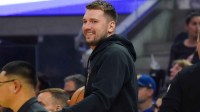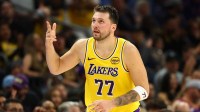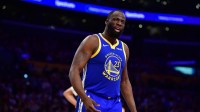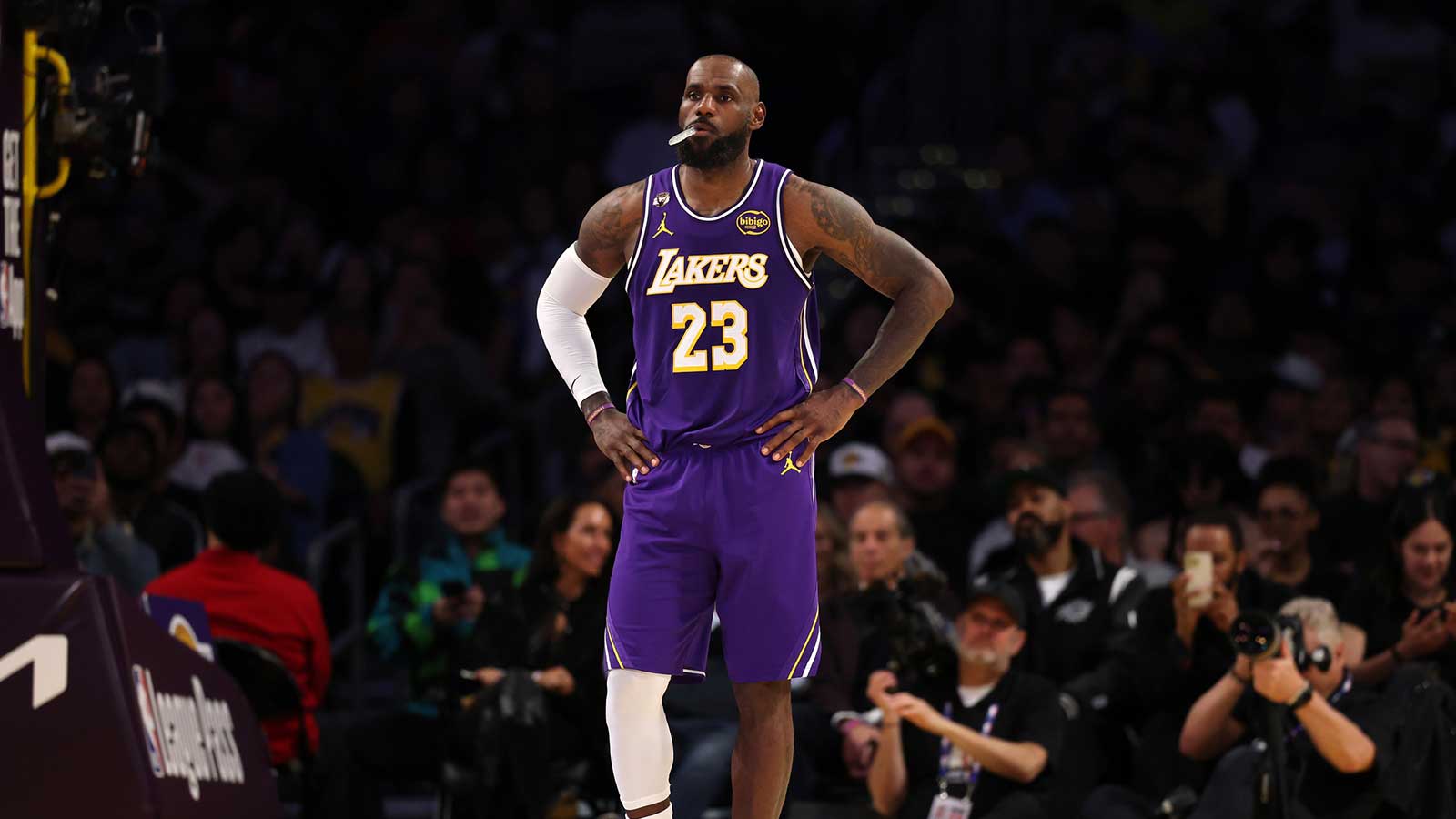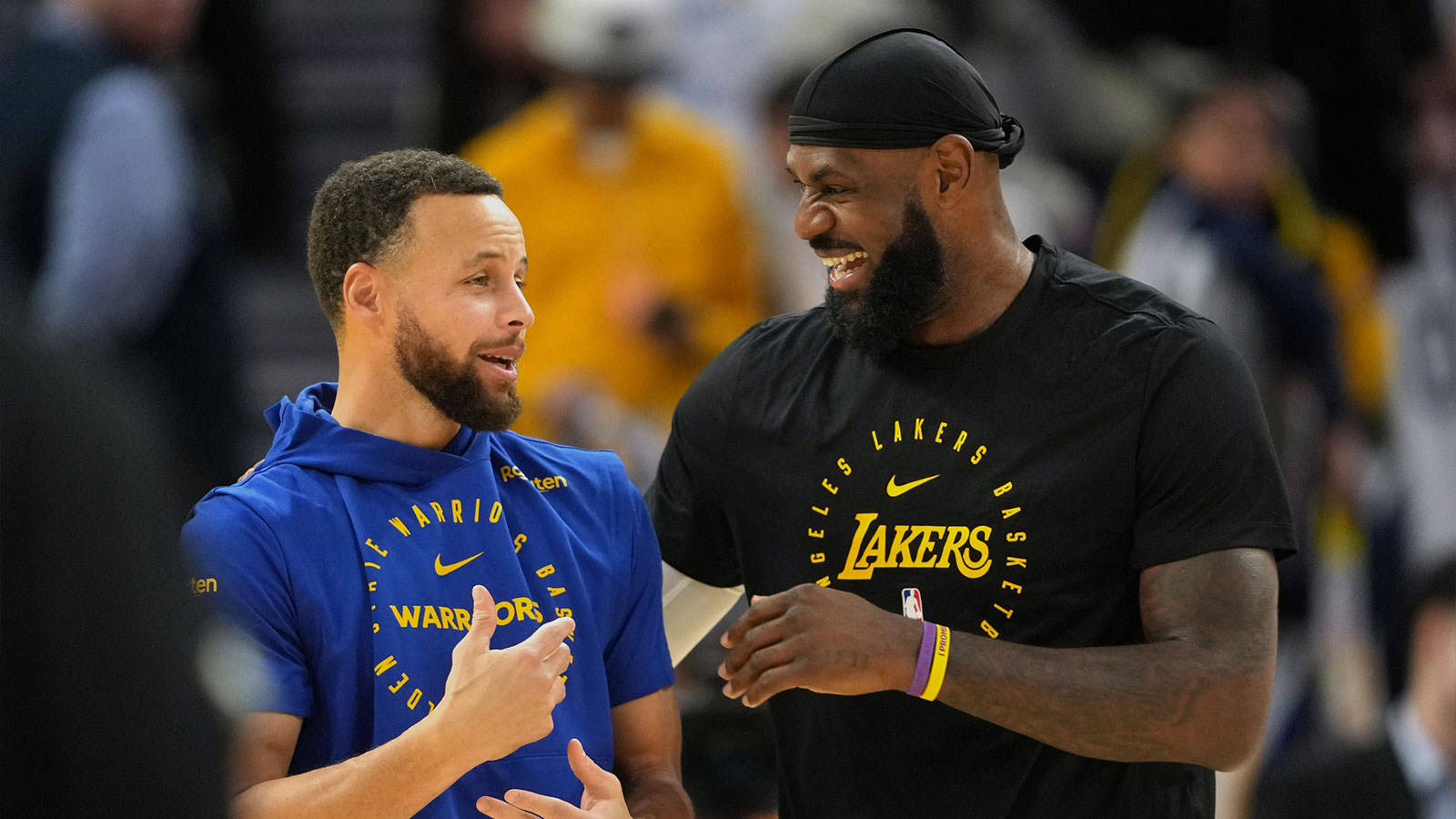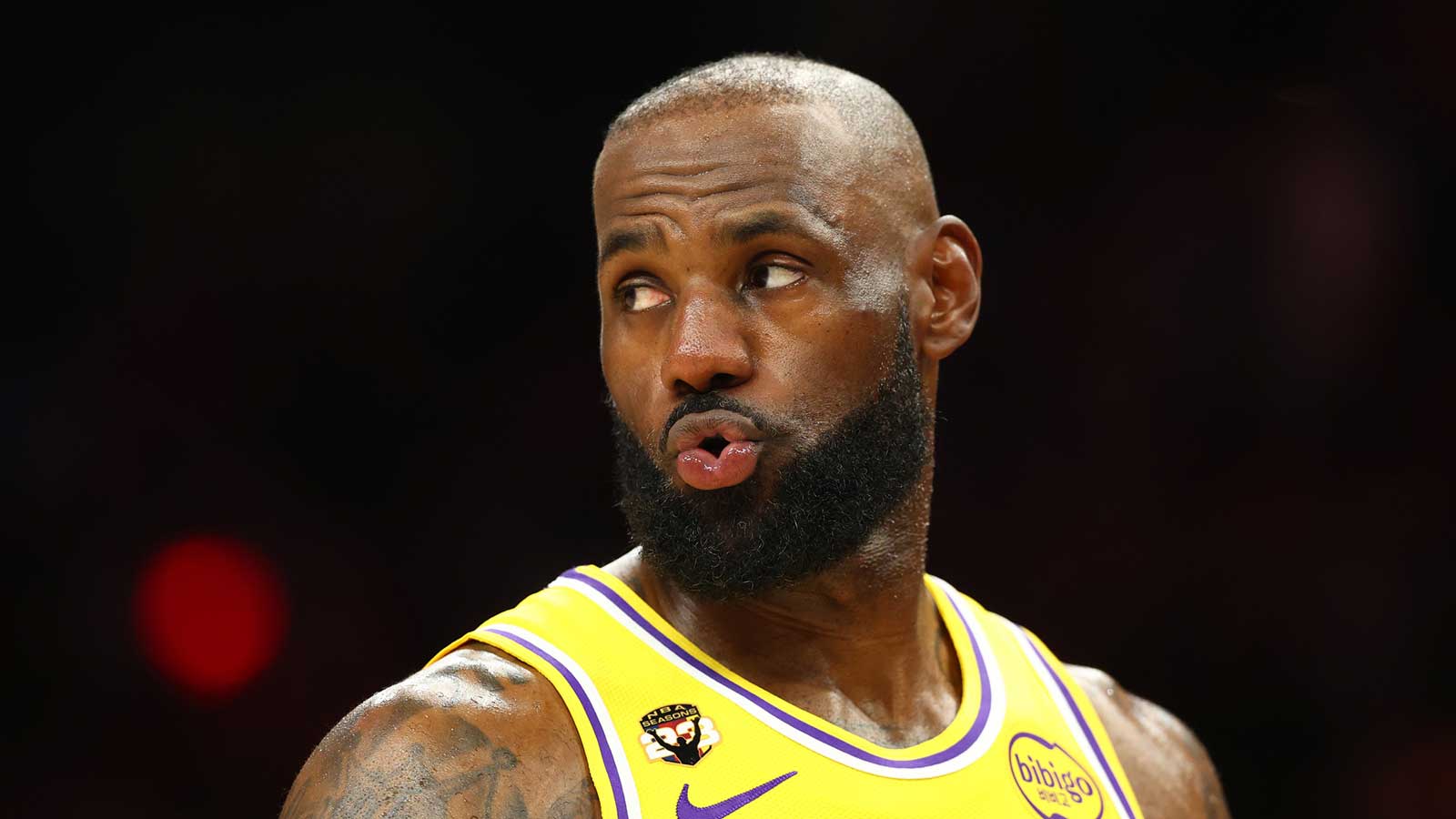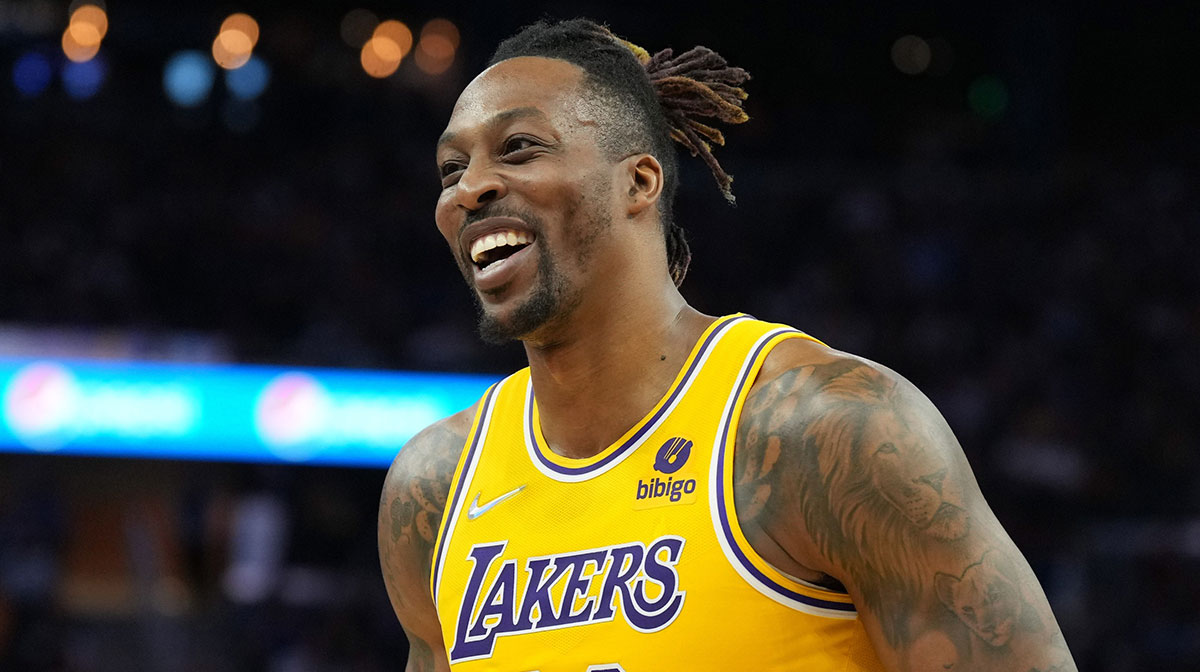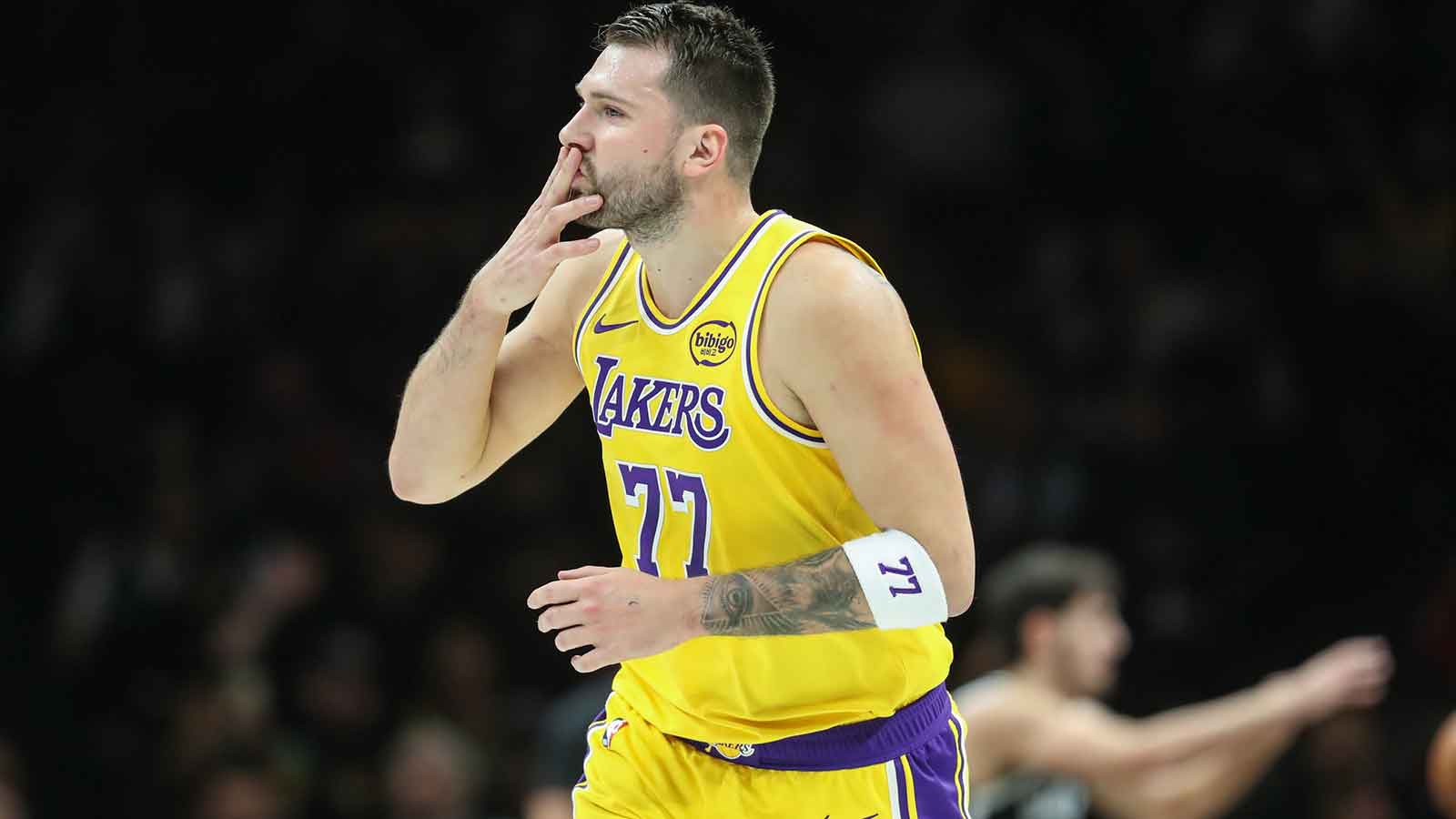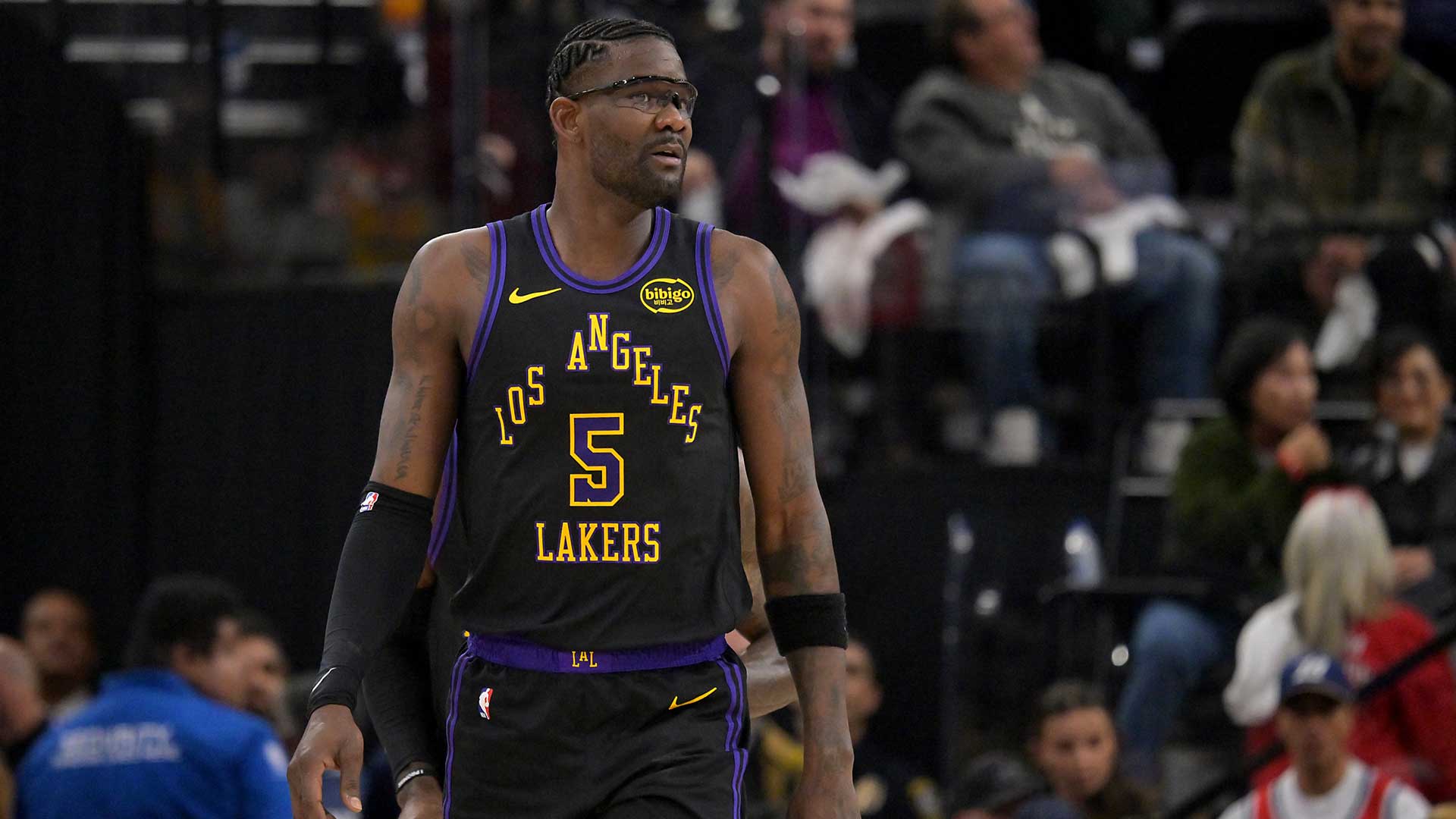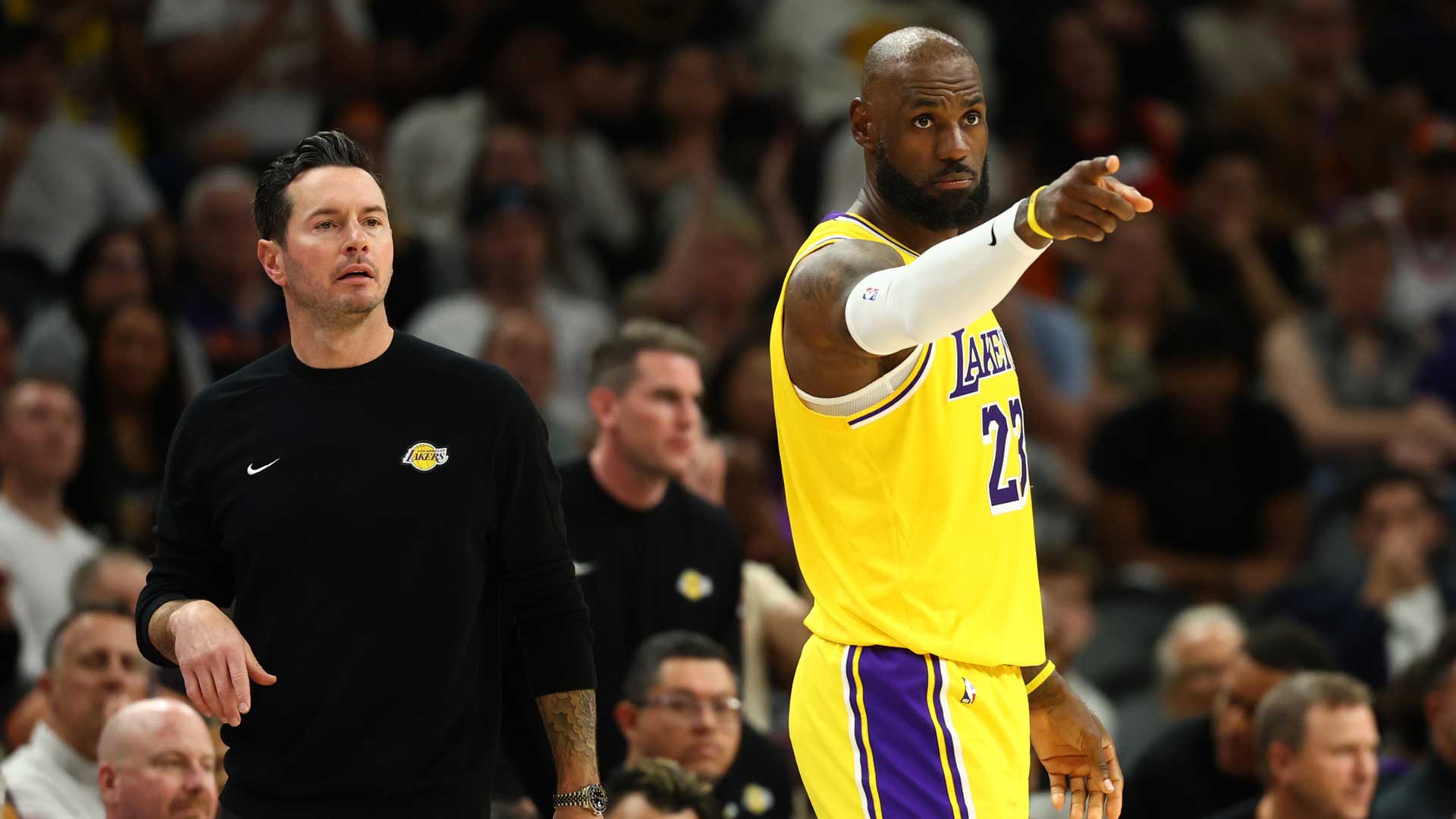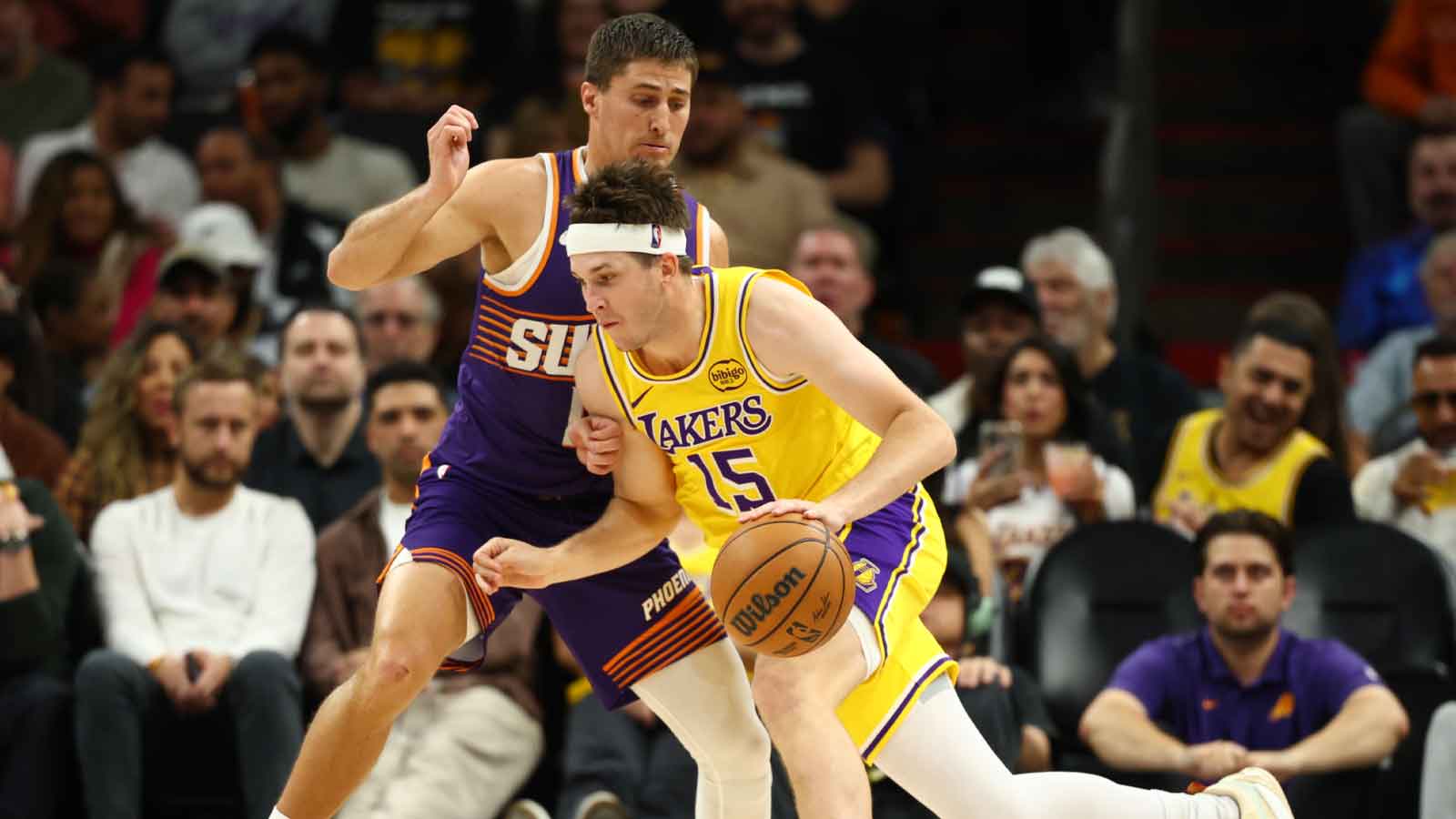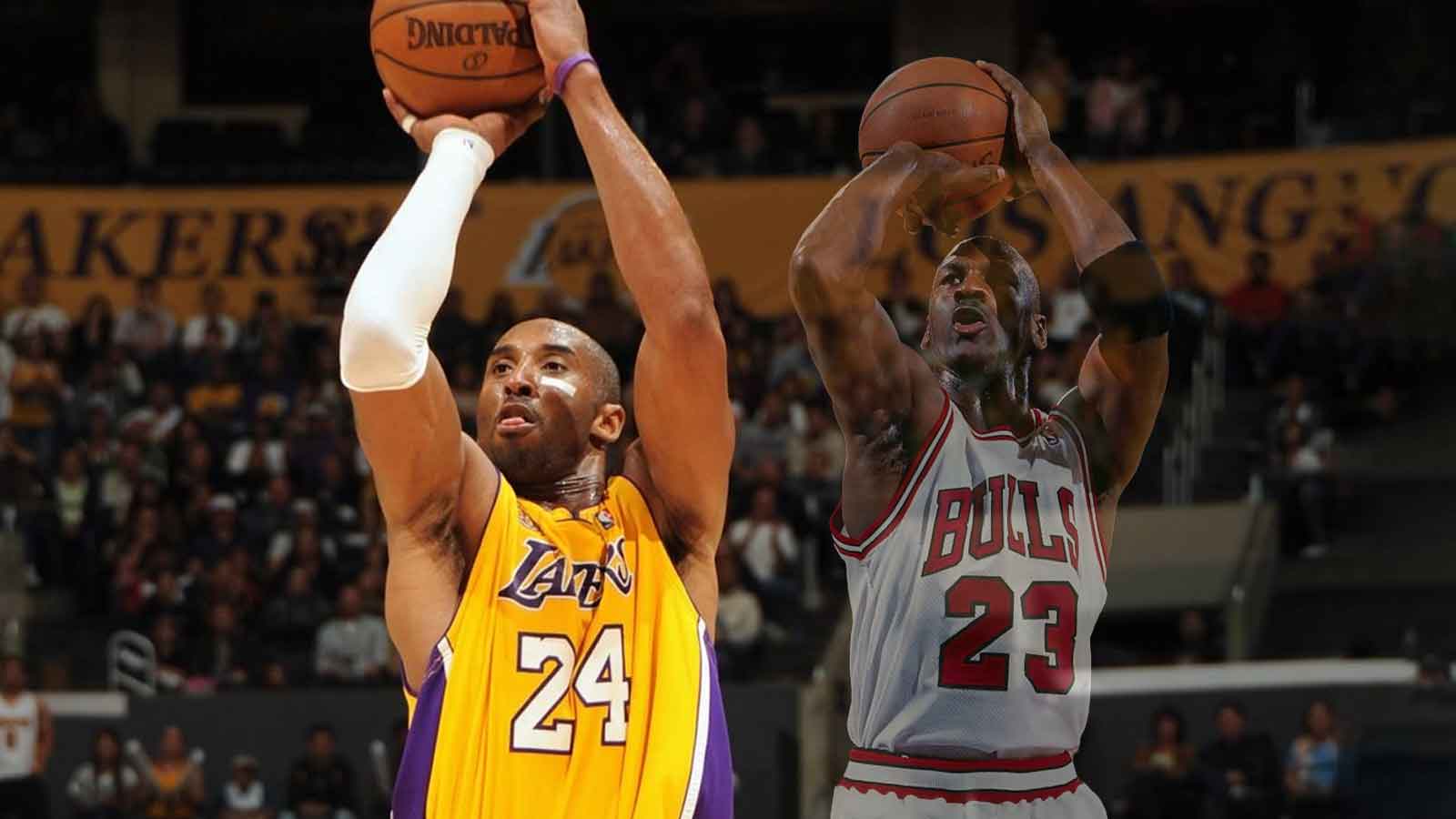Back in January, after Russell Westbrook's first benching, a barrage of reports hit our timelines that painted a confusing picture of who is actually running the Los Angeles Lakers, leading to this apt meme:
https://t.co/PZHP0WUsYt pic.twitter.com/mQMGbtghPN
— Jabari Ali Davis (@JabariADavis) January 20, 2022
Recently, I ranked the 10 people who seem to wield a degree of power and influence within the Lakers organization. The fact that I could easily get to 10 indicated a problem unto itself.
The Lakers debacle of a season came to an end on Sunday following a wild 146-141 overtime win vs. the Denver Nuggets. With LeBron James, Anthony Davis, Russell Westbrook, Carmelo Anthony, and Dwight Howard sitting out, the team's 33rd victory was fueled by a player on a minimum contract (Malik Monk, 41 points) and an undrafted rookie (Austin Reaves, 31/16/10!) — both from rural Arkansas.
Last summer, the Lakers compiled the most prolific, and oldest, roster in NBA history. They embraced a strict championship-or-bust mindset, talked a whole lot about sacrifice, and began the season as favorites to make the Finals. As you might've heard: nothing went as planned. In the preseason, Kendrick Nunn, Talen Horton-Tucker, and Trevor Ariza suffered serious injuries and the team went 0-6. But it was just the preseason, right?
Over the next six months, the worst-case scenario – in nearly every respect — manifested.
The slew of leaks in the wake of Westbrook's benching was not coincidental; It was the result of a handful of frustrated people within the building getting a head start on the finger-pointing. The trade was LeBron's idea. Jeanie was cheap. Injuries. COVID. No time to develop chemistry. Vogel botched the rotations. Westbrook didn't try to fit in. It's Kurt and Linda Rambis's fault … just cause.
The Lakers opted not to fire Vogel midseason (he benched Russ a couple of more times) and the internal tension seemed to cool off. The on-court product didn't benefit. AD, then LeBron, got hurt again, and the Lakers lost 17 of 21 games after the All-Star break. Whether they truly wanted to make the Play-In tournament remains up for debate.
Last week, the blame game regained steam. Front office sources told ESPN that the Russ trade came at the insistence of LeBron and AD. Folks close to the coaching staff told the Los Angeles Times that Westbrook's disdain for Vogel and general stubbornness began on “Day 1.” On Monday, The Athletic detailed yet another account of Westbrook clashing with the coaches in the film room.
Now that the season is finally over and exit interviews have been conducted, let's ponder, for one final time: Who is to blame for one of the most disappointing seasons in NBA history?
https://open.spotify.com/episode/5A53alv7I8uub6EBQYFFXZ?si=e03d53cfbce84706
Honorable mention: Bad luck
You could argue that the Lakers suffered from bad luck as much as any other issue. Certainly, the players have laid out that case.
I'm not ready to let the Lakers off the hook that easy. Nearly every team above them in the West has dealt with as many injuries, and multiple teams dealt with widespread COVID-19 issues, which almost exclusively affected the Lakers in December. They were bad before and after.
Plus, regardless of how the injuries occurred, nobody should have expected a 37-year old and AD to stay healthy. That's why they got Russ. The Lakers' lack of cohesion and depth — both a result of voluntary failed offseason moves — removed any margin of error.
The fact that LeBron, Russ, and AD only played 21 games together legitimately hindered their ability to develop chemistry, but the 11-10 record in those contests and the negative net rating of LeBron/Russ/Davis lineups (-3.5) — plus the eye-test and common basketball sense — illustrate the awkward fit.
“To not log enough minutes together is what hurt us,” AD said. “I still think us being on the floor together where [there is only] two out of three can win basketball games; it just didn't happen.”
5) Frank Vogel
Firing Vogel midseason wouldn't have been worth it. There was no logical replacement who could have miraculously turned this around. As they did at the trade deadline, the front office opted to ride out the storm. Instead, they allowed his firing to leak seconds after his final win and before his final press conference in Los Angeles.
Calling Woj "unsourced" is just insulting to everybody's intelligence and literally the opposite of true. Plus, his report was, clearly, factual. https://t.co/bYzyms88Qw
— Michael Corvo (@michaelcorvo_) April 11, 2022
Vogel was dealt a hopeless hand. After signing him to a lame-duck extension 10 months after a title, the front office filled the roster with offensive-minded players. Pelinka put the onus on Vogel to figure out the defense, citing his past success in that department.
That said, Vogel had a bad season. His insistence on starting DeAndre Jordan for a month — when the Lakers' schedule was rife with home games against lottery squads — squandered quarters. He over-tinkered with rotations and trusted washed veterans (see: Bradley, Avery) over frisky youngsters too often. He pivoted to small-ball too late and never developed stylistic consistency on either end. To switch or drop? was a nightly query, and the players (not just Russ) lamented the constant lineup shuffling. The Lakers ended up deploying 41 different starting fives.
“This year we had more starting lineups than we had wins,” Davis summarized.
He was set up to fail. The team gave him a roster that was utterly antithetical to his philosophy. Still, the coach's job is to maximize the talent on the roster. Vogel basically never figured any of it out with this group.
“I thought he did what he had to do. I mean, he was trying to figure it out just like everybody else was figuring it out with what he had on a nightly basis,” Carmelo said. “I mean, we didn’t know. I’m sure he didn’t know what he was going to have on a nightly basis. And then some of those things weren’t things that we couldn’t control. Not knowing lineups, trying to figure out different lineups, trying to figure out rotations, trying to figure out how who goes with what, having different guys in and out of lineups — those are things that Frank had to deal with all season long. I don’t know what Frank is thinking. I don’t know what he was thinking. I don’t know how he’s thinking right now. But if I just have to give my perspective, or my two cents, I’ll just say it never came together for him. It never clicked.”
4) LeBron James
If LeBron doesn't push for Russ, one of the worst trades in NBA history never happens. That cannot be overstated. It was an obvious miscalculation.
During the season, LeBron balled out on the hardwood but his leadership was detrimental, at times. His comments after a loss to the Milwaukee Bucks — in which he pressured the front office to make deadline moves by admitting the team wasn't good enough to contend — didn't exactly help. Nor did his shade-throwing at All-Star Weekend.
His poor body language and passive-aggressiveness started to irk his teammates. Through all the losing, he said he was “literally having the time of my life” playing basketball — a quote that hasn't aged well.
Yet, I can't be too harsh on LeBron considering his performance (even if the scoring title chase rang hollow as the losses mounted and his knee swelled). He can't commit to defense nor lift his teammates the way he used to, but he was undeniably spectacular. In his 19th season, he posted his highest scoring average (30.3 PPG) since 2005-06.
3) Jeanie Buss
The Lakers didn't just succumb to misguided roster construction. They were plagued by a lack of organizational direction and an opaque hierarchy.
There were sources in the front office claiming they didn't know what Linda Rambis actually does. Kurt Rambis — also a longtime friend and confidante of Jeanie — is apparently as influential as anybody, down to attending coaches' meetings. Jeanie happily admitted she consults Magic Johnson and Phil Jackson on current basketball matters.
Buss proudly talks about the “championship-or-bust” mentality that defines the Lakers brand (along with star power), yet she didn't shell out the luxury tax money to pay Alex Caruso, nor for a lead assistant (Scott Brooks) who could have helped Westbrook thrive.
Jeanie is fiercely loyal. The Lakers are, ultimately, a mom-and-pop business; they aren't backed by a new-money tech billionaire. But the franchise has posted only one successful season since she seized the team from her older brother, Jim, in 2017.
At some point, it would behoove her to bring in some new voices — preferably from outside the Lakers Family.
2) Russell Westbrook
"When I first got here, I just felt that I never was given a fair chance to be who I needed to be to better help this team."
Russell Westbrook sounds off on what went wrong in his first year with LeBron James, Anthony Davis, and the Lakers.pic.twitter.com/DnV2epx06X
— ClutchPoints (@ClutchPoints) April 11, 2022
Westbrook played his best basketball down the stretch — 19.2 points, 6.7 rebounds, 6.2 assists, 47.5% FG — after March 1. However, the Lakers won just four games in that span.
Westbrook failed to adapt his game and was reportedly as stubborn and defensive in the film room and with the coaching staff as he is with the media. On the first day of camp, he apparently rejected Vogel's preference that any rebounder can push the ball up-court themselves, insisting that, as the point guard, he should always get the rock. His unwillingness to take accountability in postgame pressers didn't quell the negative energy around the team.
For much of the season, his shot selection was putrid, and his reckless turnovers — which he said didn't count and he was “allowed” to make — clearly irked his teammates, as did his tendency to insist that his family and community work was more important than basketball (that's true for everybody). He was horrendous in crunchtime.
Vogel and the Lakers players routinely talked about the importance of adapting, typically in generalities, though AD called out Russ for his inability to do so before the season finale.
“When I got here, I didn't play the same way I played with Bron,” Davis said. “Bron had to change; everybody had to change. Everybody had to make sacrifices. It was tough for (Russ) to adjust to that.”
There is a popular take that Russ should be largely absolved of blame because, well, at least he brings it every night. At exit interviews, LeBron praised his effort. That, frankly, is, bogus, especially at this stage of his career. Westbrook is engaged when he's on ball, but totally switches off when he isn't. His lapses in defensive focus were jarring.
It's hard for people to change. But, there is a world in which Westbrook acknowledged his decline in talent and athleticism and committed to improving his shooting, defense, off-ball play, and intangibles, as coaches and teammates consistently implored him to do — publicly and privately.
Russell Westbrook used his exit interview presser to blame the coaches for making him prove himself, blame the fans for turning on him, and the media for writing made-up stories about him all season.
He said he could have played better, but did everything everyone asked of him.
— Michael Corvo (@michaelcorvo_) April 11, 2022
1) Rob Pelinka
The buck stops with Jeanie, but Pelinka is still the face of the front office. As he repeatedly mentioned in his exit interview press conference, he is solely responsible and accountable for basketball operations. Fair enough.
At 2021 exit interviews, Pelinka said he wanted to bring back the homegrown core. That proved utterly untrue as he enabled LeBron and AD to star-chase, approved the Westbrook deal, then OK'd a slew of head-scratching minimum contracts. In the preseason, he pegged THT as a ready-made elite 3-and-D and placed unrealistic expectations on Ariza's potential impact.
He bucked LeBron and Klutch's preferences to stand pat at the trade deadline — perhaps the right move in a vacuum — but blatantly lying about them being on board with the gameplan after was an unforced error.
Plus, the blame for this season extends far beyond this calendar year. Pelinka is on a two-year slump since the bubble, and his overall transaction batting average since running the LakesShow is painfully low. If not for the emergence of Monk and Reaves (you can toss in Stanley Johnson and Wenyen Gabriel, too), it would be hard to justify bringing him back. For now, his job appears safe.
The truth is that nearly every party invested in making the Lakers a good basketball team is equally at fault. Other than the scouting department, the organization wholly underperformed. The disorganized, nebulous front office mirrored the dysfunction on the court.
“It's all of us,” AD said. “It's my play, me not being on the floor. Bron's play, him not being on the floor. … Everybody. Coaches. Everybody's a part of the blame.”



